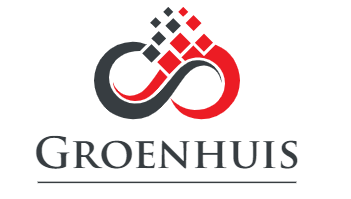The EU should restrict market access for Chinese electrolysers for multiple reasons, according to a new report commissioned by the Dutch government.
[–>
The 78-page study, written by the Netherlands Organisation for Applied Scientific Research (TNO), says that China is currently leading the world in expanding electrolyser manufacturing capacity and has plans to export its machines to Europe.
[–>
“For Chinese companies to export to Europe, it is crucial to close the gap in quality, efficiency and safety. On the basis of expert interviews, it is expected that it will take 1-2 years for China to meet the quality and safety requirements that European companies are already required to meet.
“This will (potentially) enable Chinese companies to export to Europe on a large scale.”
But it adds that while China has access to the EU’s open market, “it keeps its own market closed”, and that this situation is “likely to persist, leading to an unlevel playing field, and a dominant position for China”.
[–>
“Through additional subsidies, tax breaks, IP [intellectual property] Door de monopolietechnologieën van China te stelen en ‘vergrendelen’ wil de Chinese overheid de strategische industrieën van China zo snel mogelijk ontwikkelen”, legt het rapport uit.
[–>
This situation “leaves the EU with two unattractive options”: raising trade barriers to prevent reliance on Chinese equipment, which would likely increase costs for green hydrogen producers and users, thus slowing the market’s development; or “to bear the economic and national security costs of an increased Chinese market dominance, including in the EU”.
“At a time of escalation in East Asia, China may suddenly and without warning become unable or unwilling to supply the EU with important components and end-products for its energy security,” the report says.
[–>
TNO therefore recommends that trade with China “should take place in a level playing field”.
“Unfortunately, this can only be achieved by restricting market access for Chinese parties.”
The EU should therefore: limit the participation of non-EU companies in strategic European projects; ensure that Chinese state aid does not amount to price dumping or unfair competition; and making sure that Chinese equipment be held to similar standards as those made in the EU, such as environment lifecycle assessments and ethical labour requirements.
[–>
The bloc should also consider increasing non-financial requirements in public procurement of equipment, such as safety, efficiency, circularity, carbon footprint and labour conditions; and ensuring that software updates for Chinese products can be performed by EU firms independently of the Chinese vendor.
The study adds that the EU’s “relatively strong” local supply chains for both electrolysers and offshore wind should be protected and expanded.
[–>
“Competition by Chinese players is expected to increase very rapidly in the next few years,” the report explains.
“First, existing industry needs to be protected and strengthened, in order to maintain a strong position in Europe. In some parts of the supply chains, the amount of key players in Europe is limited. If some of these players do not survive, the European value chain can quickly become strained and overly reliant on China.
“Second, offshore wind and electrolysis manufacturing industries in the EU need to be expanded in order to maintain a strong value chain, as demand will continue to increase.”
[–>
TNO’s final recommendation is for the EU to collaborate with other countries, such as the US and India, on developing supply chains, in order to create “a larger set of alternatives and make it possible to more quickly go to alternatives if supply disruptions occur”.
The TNO study was commissioned by the Dutch Ministry of Foreign Affairs, the Ministry of Economic Affairs and Climate Policy, and the country’s China Knowledge Network, an entity that connects China experts and disseminates knowledge to the Dutch government.
[–>(Copyright)






More Stories
Nederland roept Israël op om het UNRWA-embargo te heroverwegen en dringt aan op een staakt-het-vuren
Bizar… Nederlands veldrittalent maakt het uit met Belgisch team, dat woedend reageert: ‘Ik hoop dat je faalt’
De Asieldienst kreeg in april een boete van 50.000 euro per dag opgelegd